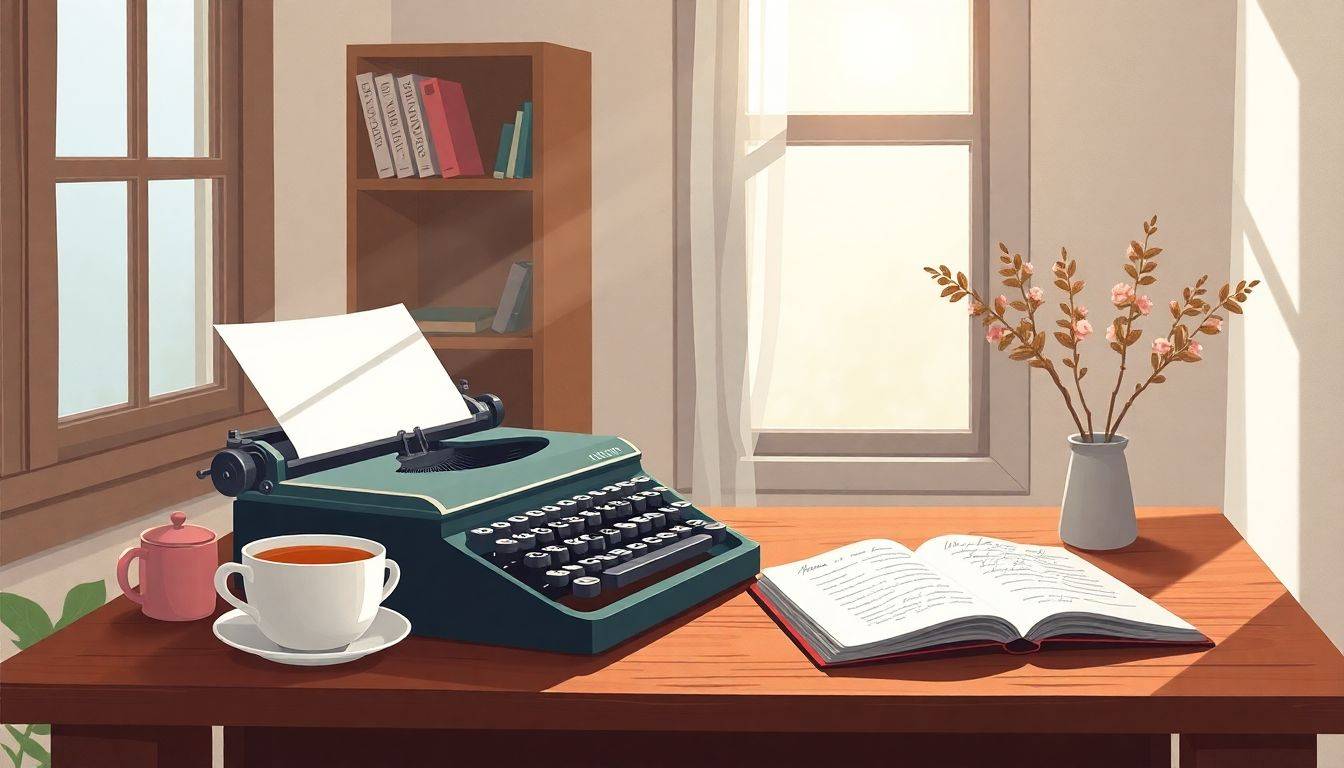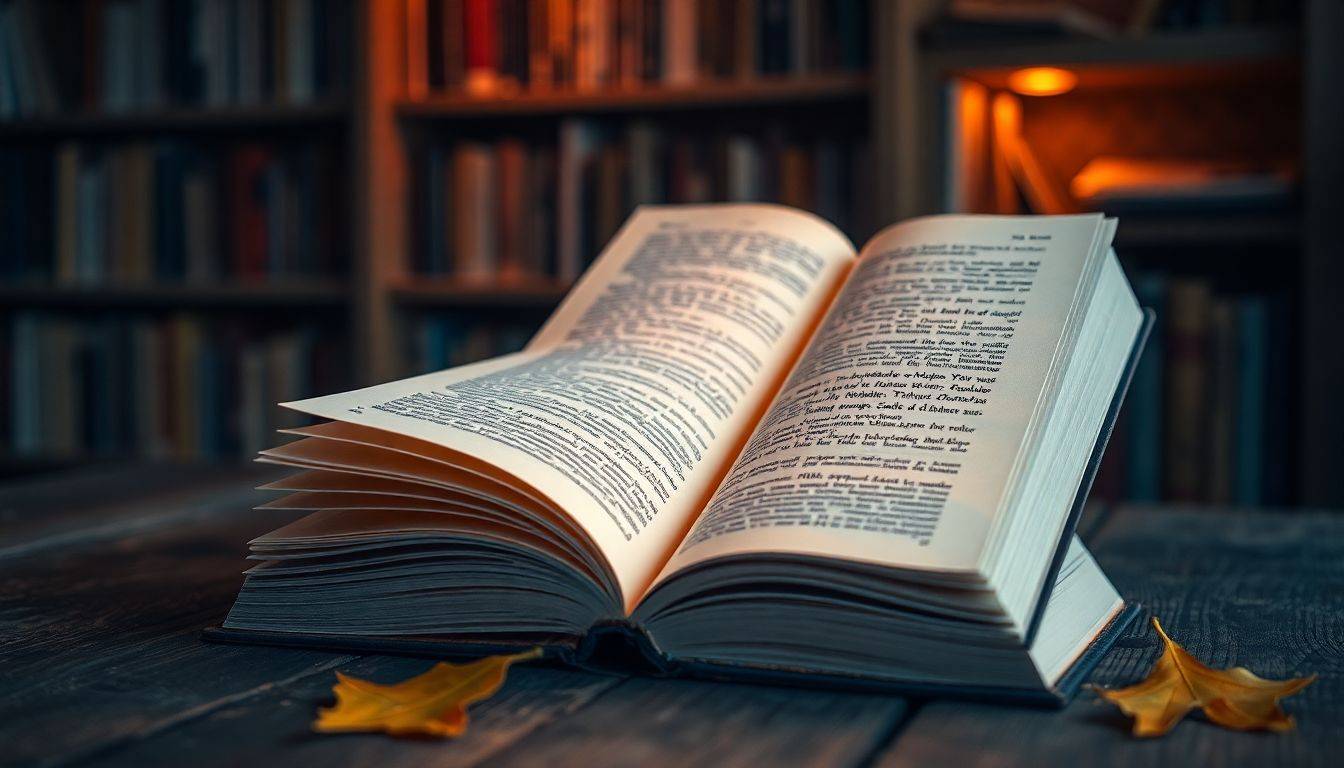Let’s admit it, writing isn’t always easy. It can feel like trying to herd cats—frustrating and unpredictable. We’ve all faced the blank page wondering how to bring our ideas to life.
But don’t lose hope! I’ve found some incredible books that turn confusion into inspiration. They made a difference for me, and I believe they’ll do the same for you.
Stick around, and I’ll share these must-reads that every writer should know about.
Key Takeaways
- “On Writing” by Stephen King offers valuable insights into writing habits and processes.
- “Bird by Bird” by Anne Lamott provides practical advice on overcoming self-doubt and finding your voice.
- “The Elements of Style” by Strunk and White shares classic tips for clear and effective writing.
- “On Writing Well” by William Zinsser is indispensable for crafting compelling non-fiction.
- “The War of Art” by Steven Pressfield helps tackle inner barriers like procrastination.
- “Big Magic” by Elizabeth Gilbert encourages embracing curiosity in the creative process.
- “Story” by Robert McKee explores deep principles of storytelling.
- “The Anatomy of Story” by John Truby breaks down storytelling in an understandable way.
- Utilize writing prompts and join writing communities for inspiration and support.

Best Books for Writers
Looking to improve your writing craft? There are some standout books that every writer should have on their shelf. One of the top recommendations is “On Writing” by Stephen King. Part memoir, part master class, this book offers insights into the habits and processes that have made King a prolific author.
Another must-read is “Bird by Bird” by Anne Lamott. This guide is both practical and heartfelt, addressing everything from overcoming self-doubt to finding your voice.
If you’re keen on refining your style and grammar, “The Elements of Style” by William Strunk Jr. and E.B. White is a classic that has stood the test of time. It’s concise and filled with essential tips for clear and effective writing.
For those interested in non-fiction, “On Writing Well” by William Zinsser is indispensable. With over a million copies sold, it’s a testament to its value for writers looking to craft compelling non-fiction narratives.
Ready to share your own writing with the world? Navigating the publishing process can be daunting, but it’s possible to get a book published without an agent. Understanding your options can empower you to take the next step.
Essential Guides for Writers
Every writer needs a toolkit of resources to navigate the challenges of the craft. “The War of Art” by Steven Pressfield tackles the inner barriers writers face, such as procrastination and self-doubt. It’s a motivating read that pushes you to overcome resistance and get words on the page.
For developing daily writing habits, “The Miracle Morning for Writers” by Hal Elrod and Steve Scott offers strategies to boost productivity. Both authors have found success, with Elrod’s books highly rated on Amazon and Scott landing on the Wall Street Journal bestsellers list. Additionally, choosing the right tools can enhance your efficiency. Check out the best word processors for writers to find the one that suits your style.
Understanding storytelling structures can elevate your writing. “Story” by Robert McKee delves deep into the principles of storytelling, making it a valuable guide for both new and experienced writers.
Books to Help Overcome Writing Challenges
Stuck in a creative rut? “Big Magic: Creative Living Beyond Fear” by Elizabeth Gilbert explores how to embrace curiosity and let go of unnecessary suffering in the creative process. It’s like a pep talk from a friend who understands the struggles of being a writer.
Another helpful read is “Writing Down the Bones” by Natalie Goldberg. This book encourages writers to let go of perfectionism and write freely, offering exercises to get the creative juices flowing.
Sometimes, all you need is a fresh prompt to spark inspiration. If that’s the case, check out these winter writing prompts to jumpstart your creativity during the colder months.
If you’re wrestling with self-doubt, “The Artist’s Way” by Julia Cameron provides a twelve-week program to recover your creativity from a variety of blocks, including limiting beliefs and fear.

Books for Crafting Fiction
Crafting a compelling story can be both exciting and overwhelming.
But don’t worry, there are some fantastic books out there to help guide you.
One personal favorite is “The Anatomy of Story” by John Truby.
It breaks down the storytelling process in a way that’s easy to understand, which was a game-changer for me.
If you’re looking to develop rich, believable characters, “Character Development for Novelists” by Victoria Lynn Schmidt offers practical exercises that dive deep into character creation.
I remember trying out one of her exercises and suddenly my protagonist felt so much more real.
Struggling with plotting?
“Plot & Structure” by James Scott Bell provides clear techniques to help you construct a solid storyline.
It’s like having a roadmap for your novel.
And let’s not forget about dialogue.
“Dialogue” by Robert McKee delves into crafting conversations that feel authentic and move your story forward.
Sometimes, all you need is a fresh idea to get started.
If you’re in need of inspiration, check out this fun dystopian plot generator.
It might just spark that next big idea.
Advanced Writing Techniques
Ready to take your writing to the next level?
Diving into advanced techniques can really enhance your storytelling.
One book that helped me polish my work is “Self-Editing for Fiction Writers” by Renni Browne and Dave King.
It teaches you how to refine your manuscript like a pro editor.
The tips on showing versus telling were a real eye-opener.
Connecting with readers on an emotional level is crucial.
“The Emotional Craft of Fiction” by Donald Maass explores how to make readers feel deeply invested in your story.
It’s not just about what happens, but how it makes the reader feel.
If you’re interested in experimenting with narrative forms, “Meander, Spiral, Explode” by Jane Alison offers fresh insights into unconventional storytelling structures.
It’s fascinating to see how stories can be shaped in different ways.
Ever thought about writing from a unique perspective?
Exploring different points of view can add depth to your work.
Did you know there’s even a fourth person point of view?
It’s an intriguing concept that might add a new layer to your storytelling.
Additional Resources for Writers
Books are amazing, but they’re just one piece of the puzzle.
Sometimes, the right tools can make a huge difference.
If you’re on the hunt for the best word processor for writers, there are several great options designed to fit different writing styles.
Finding the right one can streamline your process.
Community is also key.
Joining writing groups, whether online or in person, can provide support and valuable feedback.
Sharing your work and hearing others’ experiences can be incredibly motivating.
And when writer’s block hits (we’ve all been there), prompts can help get the creativity flowing again.
These fall writing prompts are perfect for sparking new ideas, especially when the autumn leaves start to fall.
Conclusion: Write Better with These Books
Writing is a journey filled with highs and lows.
But with the right resources, it becomes a lot more manageable—and enjoyable.
The books and tools we’ve discussed are like trusted companions, ready to guide you every step of the way.
So go ahead, pick up one of these books, try out a new writing prompt, or join a community.
Your story matters, and the world is waiting to hear it.
Happy writing!
FAQs
Key books for writers include “On Writing” by Stephen King, “Bird by Bird” by Anne Lamott, and “The Elements of Style” by Strunk and White. These classics offer valuable insights into the craft and help enhance writing skills.
“The War of Art” by Steven Pressfield and “Big Magic” by Elizabeth Gilbert are excellent for tackling creative blocks. They offer strategies to overcome resistance and inspire writers to continue their creative pursuits.
“Writing 21st Century Fiction” by Donald Maass and “Story” by Robert McKee are top picks for fiction writers. They delve into character development, plot structure, and advanced narrative techniques to elevate your storytelling.
Yes, advanced writers can benefit from “The Art of Fiction” by John Gardner and “Steering the Craft” by Ursula K. Le Guin. These books explore complex aspects of writing, offering deeper insights into style and narrative form.
